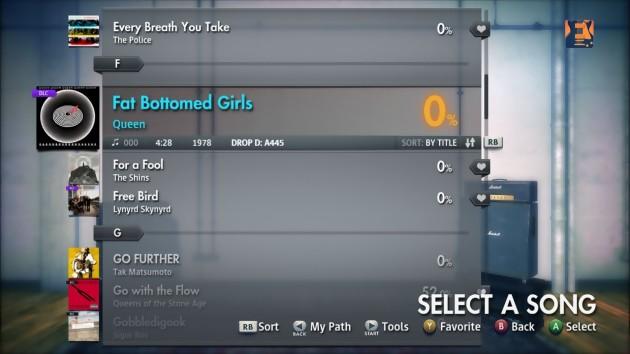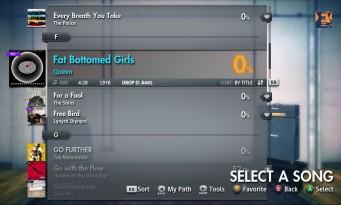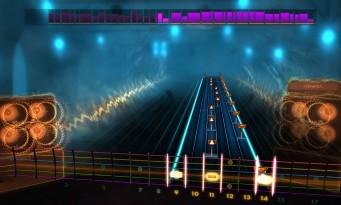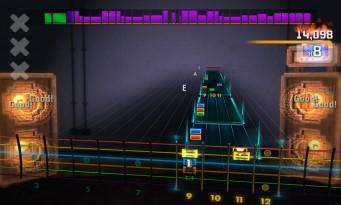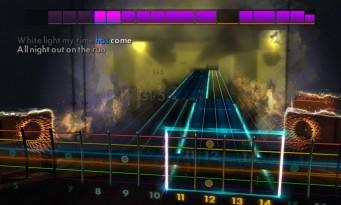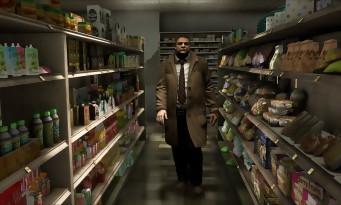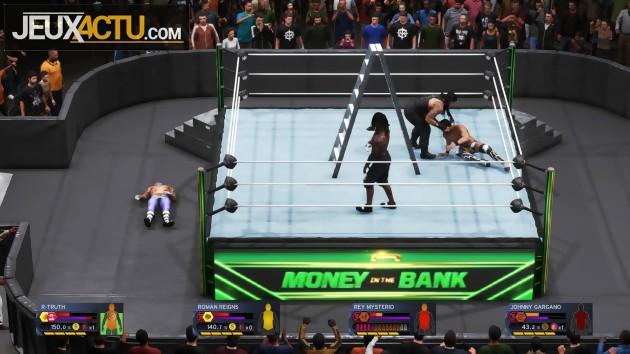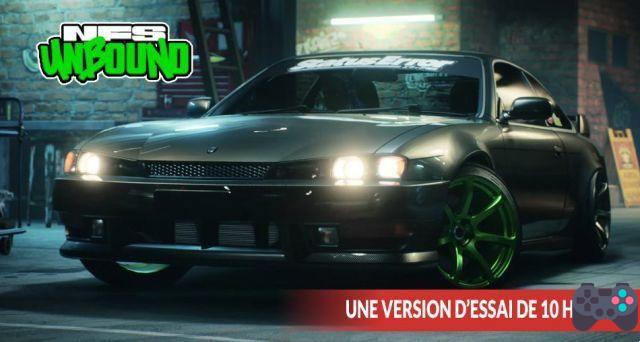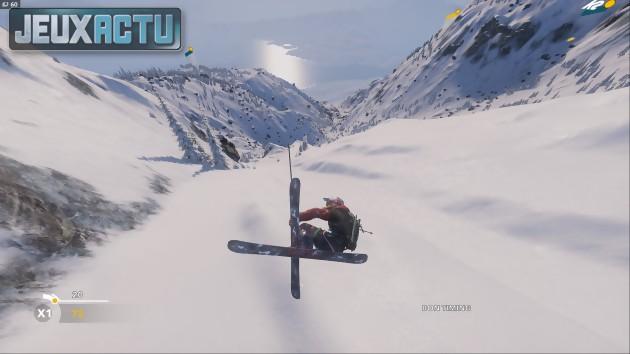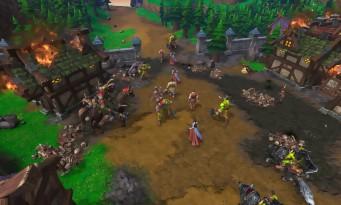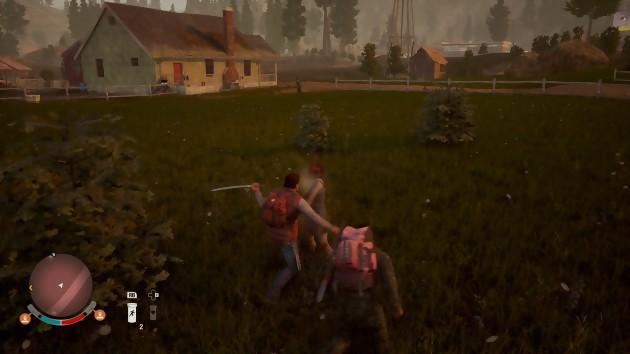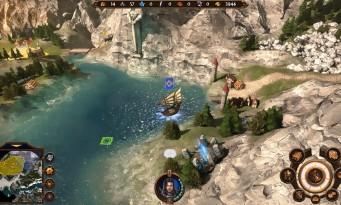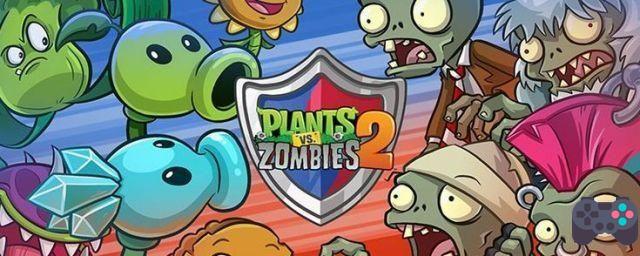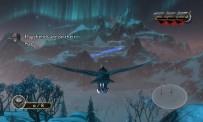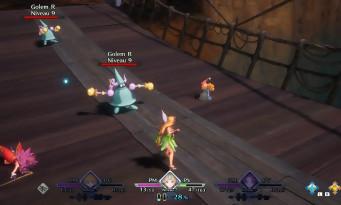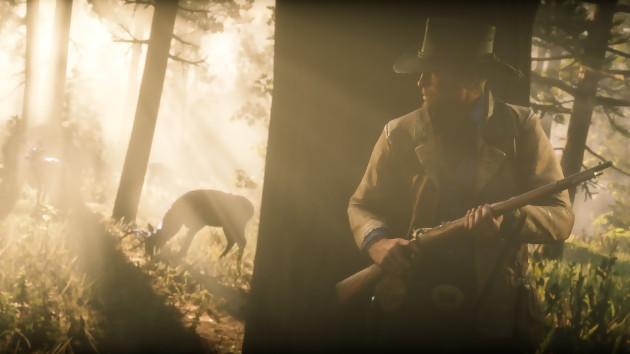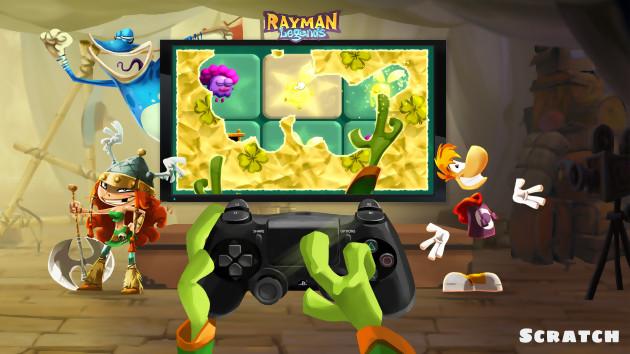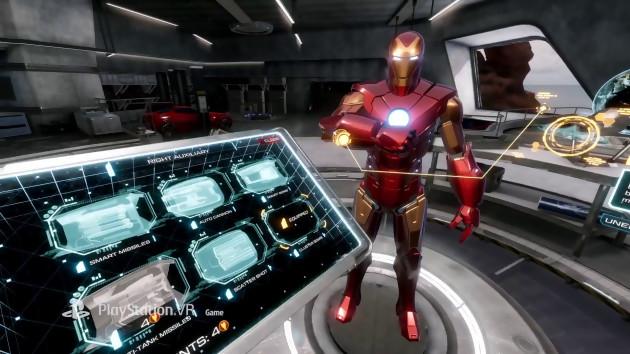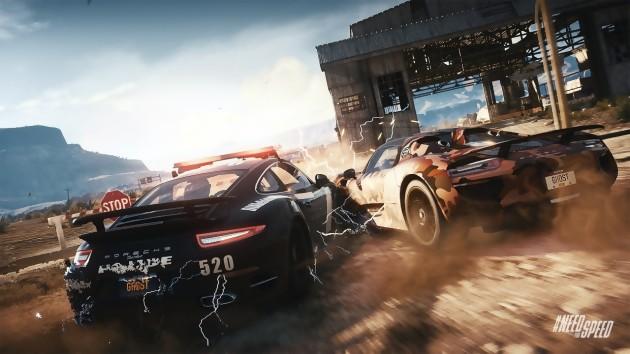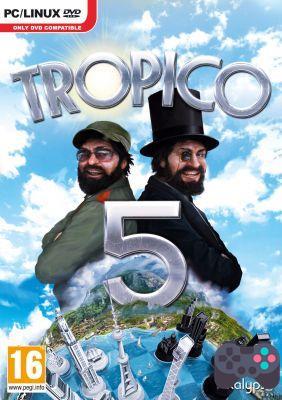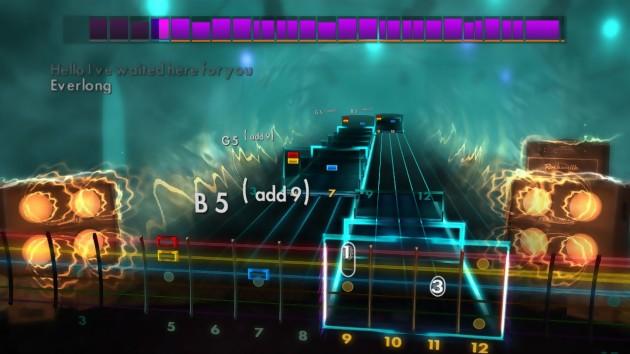 For those who missed it last year (it's possible, the game had remained fairly confidential and the retailers hadn't really taken the risk of taking cases), Rocksmith is a title from Ubisoft that aims to be to be above all a method of learning the basics of the electric guitar. Long story short, it let you play famous tunes using an interface modeled after that of the late Guitar Hero, with notes to strum as they hit your strings, and a whole drum set of lessons and chords. exercises to improve your dexterity and your knowledge of the instrument. You will probably have noticed that this new episode has carefully avoided the name of Rocksmith 2, probably too flashy, opting instead for Rocksmith Edition 2014. All is said: this new Rocksmith is only episode 1.5, which takes up the main lines, and even some small ones, of its predecessor.
For those who missed it last year (it's possible, the game had remained fairly confidential and the retailers hadn't really taken the risk of taking cases), Rocksmith is a title from Ubisoft that aims to be to be above all a method of learning the basics of the electric guitar. Long story short, it let you play famous tunes using an interface modeled after that of the late Guitar Hero, with notes to strum as they hit your strings, and a whole drum set of lessons and chords. exercises to improve your dexterity and your knowledge of the instrument. You will probably have noticed that this new episode has carefully avoided the name of Rocksmith 2, probably too flashy, opting instead for Rocksmith Edition 2014. All is said: this new Rocksmith is only episode 1.5, which takes up the main lines, and even some small ones, of its predecessor.It's the same old song
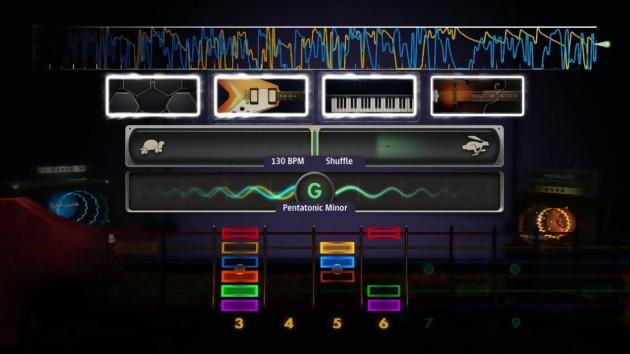 The heart of the game is therefore always the same: the musical interface has not changed one iota, still Guitar Hero Style, one color per string, different shapes for the different techniques (bend, tapping, muffled notes, etc. ), and the player strums when the note(s) reach their pitch. The progressive difficulty system is also still present and now fully configurable, whether it is the number and difficulty of the notes to play or the speed of the piece to work on, thanks to the new "Riff" mode.. Too bad that slowing down a piece distorts the sound much more than before and that it is no longer possible to stop on a missed note, with a little rewind to try it again (which was very practical for chords with full of fingers that we don't know where we should put them in the heat of the moment). The latency is a little less present if you are only connected to HDMI, but you will still need to separate sound and image, to put the first in analog on a different output (like a hi-fi system) and thus get the most out of it. of the game. The mediocre recognition of certain chords, it always hurts a bit when you dropped 20 to 30 euros more for a special jack cable sold with the game. I thus got stuck on a lesson that asked me to strum all open strings; I scratched in vain like a deaf person, nothing helped...
The heart of the game is therefore always the same: the musical interface has not changed one iota, still Guitar Hero Style, one color per string, different shapes for the different techniques (bend, tapping, muffled notes, etc. ), and the player strums when the note(s) reach their pitch. The progressive difficulty system is also still present and now fully configurable, whether it is the number and difficulty of the notes to play or the speed of the piece to work on, thanks to the new "Riff" mode.. Too bad that slowing down a piece distorts the sound much more than before and that it is no longer possible to stop on a missed note, with a little rewind to try it again (which was very practical for chords with full of fingers that we don't know where we should put them in the heat of the moment). The latency is a little less present if you are only connected to HDMI, but you will still need to separate sound and image, to put the first in analog on a different output (like a hi-fi system) and thus get the most out of it. of the game. The mediocre recognition of certain chords, it always hurts a bit when you dropped 20 to 30 euros more for a special jack cable sold with the game. I thus got stuck on a lesson that asked me to strum all open strings; I scratched in vain like a deaf person, nothing helped...Become a real rock'n rolla!
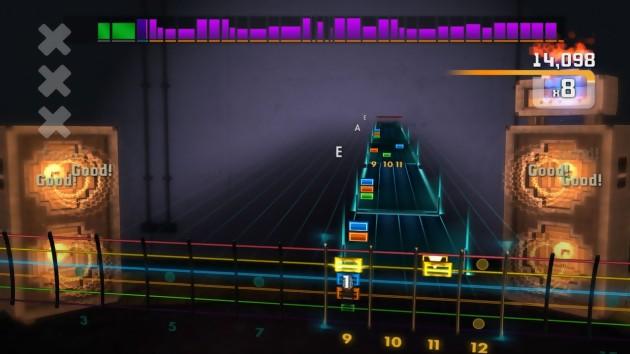 The courses precisely, let's talk about it, since they are always in the game, better organized and more detailed. Supporting video and training pieces, you can discover the basics or perfect your technique, always in a very educational way. Here again, small defect, if the chord book is rather complete, we would have liked to have the placement of the fingers in images, as well as the transitions between chords. We assume (we hope) that it will be for the next time... Still, the method is effective for beginners, and regulars will have to set up a few options to have fun. Either way, the way they progress will drastically change in Rocksmith 2014: the semblance of a “Career” mode from the first game has completely disappeared to be replaced by a “Learn a Song” mode. There, the game is responsible for suggesting songs according to your level, and offering you objectives to achieve, courses to follow or exercises to perform to better achieve this or that piece. We gain in readability in the menus, less in linearity in the progression.
The courses precisely, let's talk about it, since they are always in the game, better organized and more detailed. Supporting video and training pieces, you can discover the basics or perfect your technique, always in a very educational way. Here again, small defect, if the chord book is rather complete, we would have liked to have the placement of the fingers in images, as well as the transitions between chords. We assume (we hope) that it will be for the next time... Still, the method is effective for beginners, and regulars will have to set up a few options to have fun. Either way, the way they progress will drastically change in Rocksmith 2014: the semblance of a “Career” mode from the first game has completely disappeared to be replaced by a “Learn a Song” mode. There, the game is responsible for suggesting songs according to your level, and offering you objectives to achieve, courses to follow or exercises to perform to better achieve this or that piece. We gain in readability in the menus, less in linearity in the progression.From the Arctic Monkeys to The Police, via Nirvana, the Foo Fighters or even Oasis, Queen, System of A Down and the Smashing Pumpkins, there is really something to have fun."
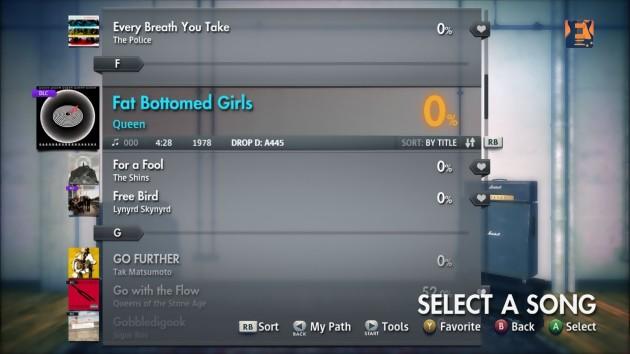 The menu is therefore clearer and more extensive. The GuitArcade mini-games are better than ever, more varied and really serve to appropriate the instrument (play without looking at your guitar, then play faster, vary in intensity, etc.). In addition to the "Learn a Song" mode, an "Impro" mode also appears. Needless to say, it is primarily recommended for insiders: it allows you to simulate the existence of other instruments around you and your playing and to adjust the smallest detail. Certainly, all this works rather well but will not be able to hold you back for long as the interest of the game lies in the fact of trying out known songs. On the tracklist side, nothing to complain about: heavy and good, from the Arctic Monkeys to The Police, via Nirvana, the Foo Fighters or even Oasis, Queen, System of A Down and the Smashing Pumpkins, there is really something to enjoy. to please. Each song is still playable on bass or guitar and the combo system has been replaced by a choice to be made from the start between rhythm guitar or soloist, which is also much less clutter. Finally, note that all the DLCs that you have purchased will be compatible with this new episode, but that you will have to pay ten euros to earn the right to integrate the tracklist of the first Rocksmith. A pill a little hard to swallow when you have already spent your money to buy the cake...
The menu is therefore clearer and more extensive. The GuitArcade mini-games are better than ever, more varied and really serve to appropriate the instrument (play without looking at your guitar, then play faster, vary in intensity, etc.). In addition to the "Learn a Song" mode, an "Impro" mode also appears. Needless to say, it is primarily recommended for insiders: it allows you to simulate the existence of other instruments around you and your playing and to adjust the smallest detail. Certainly, all this works rather well but will not be able to hold you back for long as the interest of the game lies in the fact of trying out known songs. On the tracklist side, nothing to complain about: heavy and good, from the Arctic Monkeys to The Police, via Nirvana, the Foo Fighters or even Oasis, Queen, System of A Down and the Smashing Pumpkins, there is really something to enjoy. to please. Each song is still playable on bass or guitar and the combo system has been replaced by a choice to be made from the start between rhythm guitar or soloist, which is also much less clutter. Finally, note that all the DLCs that you have purchased will be compatible with this new episode, but that you will have to pay ten euros to earn the right to integrate the tracklist of the first Rocksmith. A pill a little hard to swallow when you have already spent your money to buy the cake...